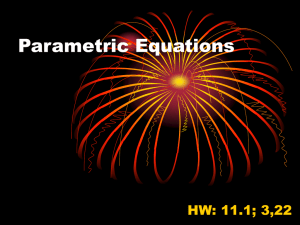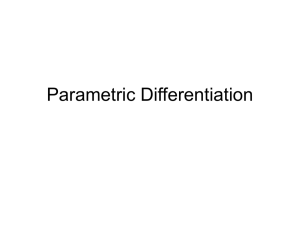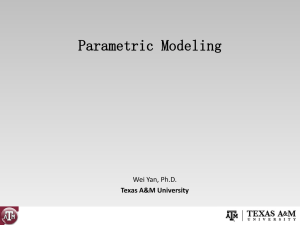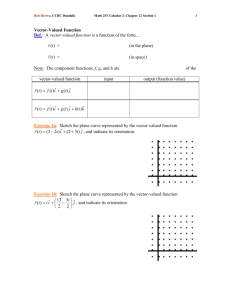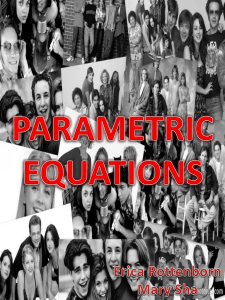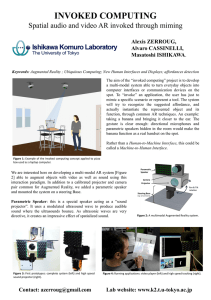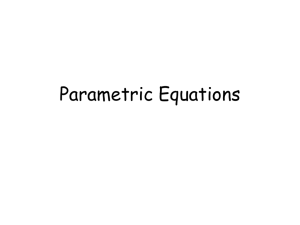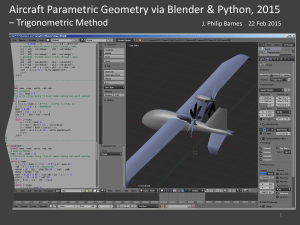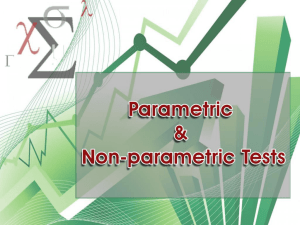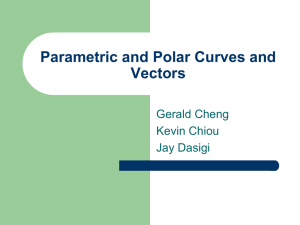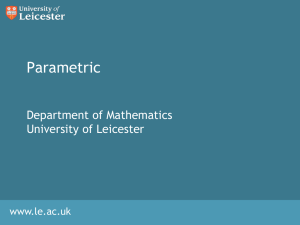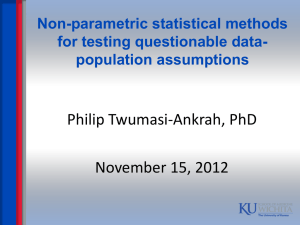r - Math
advertisement
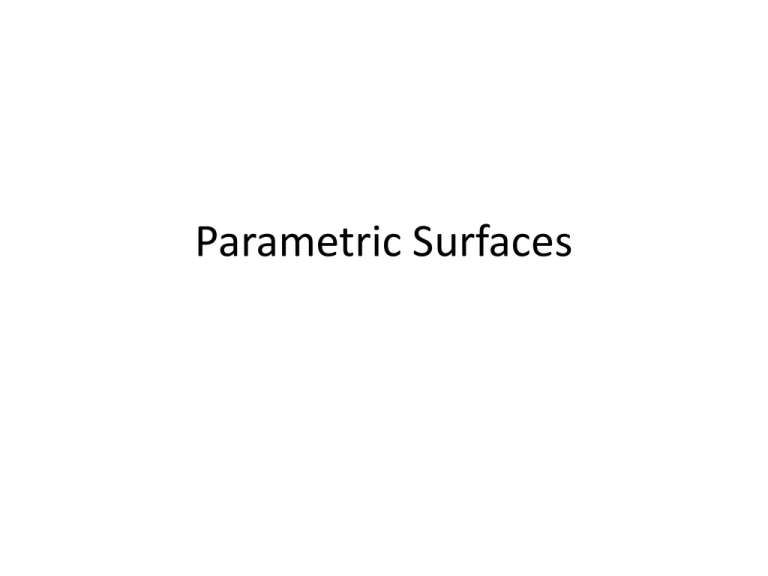
Parametric Surfaces 1. Graph the vector-valued function (Similar to p.1109 #1-6) r (u, v) (u cosv)i (u sin v) j (2u)k 2 2 Definition of Parametric Surface Let x, y, and z be functions of u and v that are continuous on a domain D in the uv-plane. The set of points (x, y, z) given by r(u, v) = x(u, v)i + y(u, v)j + z(u, v)k Is called a parametric surface. The equations x = x(u, v), y = y(u, v), and z = z(u, v) Are the parametric equations for the surface 2. Find the rectangular equation for the surface by eliminating the parameters from the vector-valued function. Identify the surface and sketch its graph (Similar to p.1109 #7-10) v r (u, v) (u )i (v) j k 6 3. Find the rectangular equation for the surface by eliminating the parameters from the vector-valued function. (Similar to p.1109 #7-10) r (u, v) (9 cosv cosu)i (9 cosv sin u) j (6 sin v)k 4. Find a vector-valued function whose graph is the indicated surface. (Similar to p.1109 #21-30) T hePlane: x y z 3 5. Find a vector-valued function whose graph is the indicated surface. (Similar to p.1109 #21-30) The Cone : x 9y 2 z 2 6. Find a vector-valued function whose graph is the indicated surface. (Similar to p.1109 #21-30) T heCylinder: x y 36 2 2 7. Write a set of parametric equations for the surface of revolution obtained by revolving the graph of the function about the given axis. (Similar to p.1110 #31-34) x y ,0 x 21 x axis 7 8. Write a set of parametric equations for the surface of revolution obtained by revolving the graph of the function about the given axis. (Similar to p.1110 #31-34) y x ,0 x 5 x axis 8/ 7 Finding a Tangent Plane to a Parametric Surface 1. Find what u and v are equal to given the point (xo, yo, zo) 2. Find the partials ru and rv 3. Find the cross product ru x rv 4. Plug in your u and v values into the cross product which gives the normal vector ai + bj + ck 5. Tangent plane is: a(x – xo) + b(y – yo) + c(z – zo) = 0 9. Find an equation of the tangent plane to the surface represented by the vector-valued function at the given point. (Similar to p.1110 #35-38) r (u, v) (9u v)i (u v) j vk, (3,3,3) Area of a Parametric Surface Let S be a smooth parametric surface r(u, v) = x(u, v)i + y(u, v)j + z(u, v)k Defined over an open region D in the uv-plane. If each point on the surface S corresponds to exactly one point in the domain D, then the surface area of S is given by Surface area dS ru rv dA S D x y z x y z where ru i j k and rv i j k u u u v v v 10. Find the area of the surface over the given region. (Similar to p.1110 #39-46) r (u, v) (6u)i vj vk, 0 u 2, 0 v 4 11. Find the area of the surface over the given region. (Similar to p.1110 #39-46) r (u, v) (9 sin u cosv)i (9 sin u sin v) j (9 cosu )k 0 u , 0 v 2
